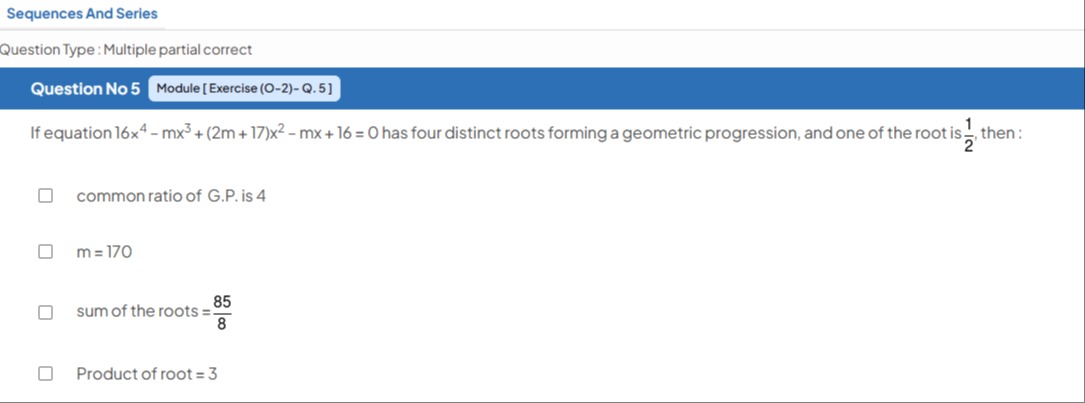Question
Question: If equation $16x^4 - mx^3 + (2m + 17)x^2 - mx + 16 = 0$ has four distinct roots forming a geometric ...
If equation 16x4−mx3+(2m+17)x2−mx+16=0 has four distinct roots forming a geometric progression, and one of the root is 21, then :

common ratio of G.P. is 4
m = 170
sum of the roots = 885
Product of root = 3
m = 170, sum of the roots = 885
Solution
The given equation is a reciprocal equation of type I. If α is a root, then 1/α is also a root. Since 21 is a root, 2 must also be a root.
Let the four distinct roots forming a geometric progression be a/r3,a/r,ar,ar3. The product of the roots is a4. From the equation, the product of the roots is 16/16=1. So, a4=1⟹a=±1.
Using a=1, the roots are 1/r3,1/r,r,r3. Since 1/2 and 2 are roots, the only way for them to fit this pattern (with distinct roots and product 1) is if 1/r=1/2 (or r=2). This implies r=2.
The roots are then 1/23,1/2,2,23, which are 1/8,1/2,2,8.
- Common ratio of G.P. is 4: False, it is 2.
- Sum of roots =1/8+1/2+2+8=(1+4+16+64)/8=85/8.
- From the equation, sum of roots =−(−m/16)=m/16.
- Equating sums: m/16=85/8⟹m=170. So, "m = 170" is true and "sum of the roots = 85/8" is true.
- Product of root = 3: False, product of roots is 1.
Therefore, m = 170 and sum of the roots = 885 are the correct options.
